What Happens When a Growing Black Business is in the Crosshairs of a National Union
By Jeff Thomas
Brothers Jimmie and Glenn Woods started Metro Disposal (a/k/a Metro Service Group, Inc.) with vision, grit and determination. “It was just us. We had an old truck and we handmade our containers ourselves,” said Jimmie as he closed his eyes, leaned back in his chair and held his head back. “Around 8 at night I would drive and Glenn would be the hopper, and we would pick up the trash that had accumulated that day.”
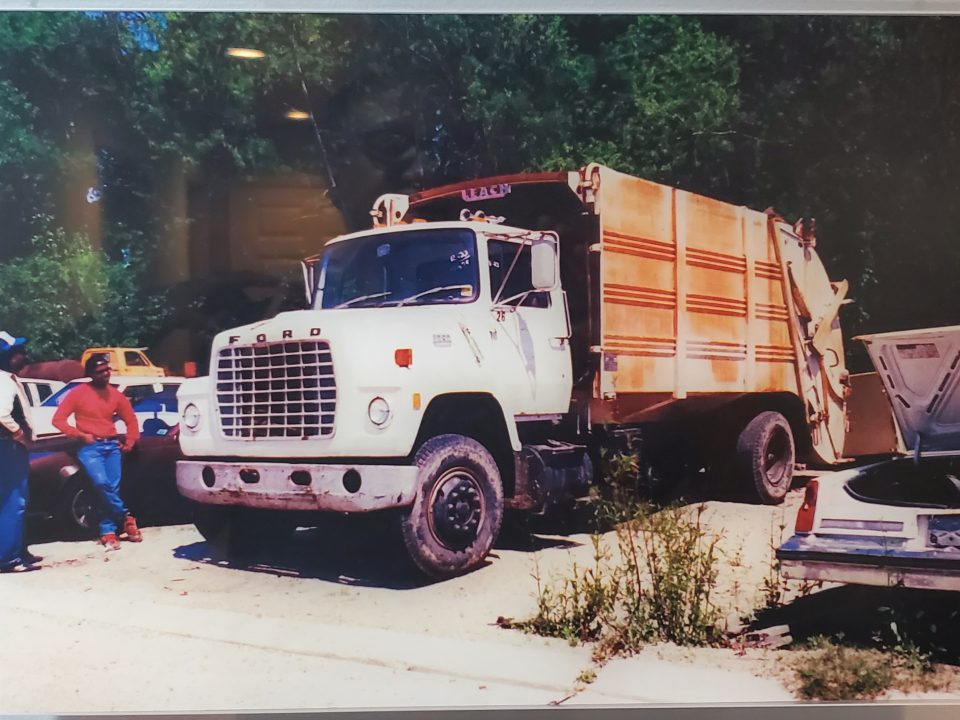
“And the next morning we would put on a shirt and tie and knock on doors to get more customers,” added Glenn. “But I was the wheel man for the containers. If one of them broke, I would jack it up and fix it right there on the spot.”
“One day our truck broke down and I was under it laying in a rancid pool of maggots and feces infested water,” said Jimmie as the brothers teased about who worked the hardest. “You were good at anticipating the tool I would need next though.”
Metro has grown significantly over the last 38 years into a multi-state operation that is much more than two men and a truck. In New Orleans, Metro is one of the two African-American owned companies responsible for collecting the trash across our city. The two brothers parlayed their quick wardrobe changes and penchant to work long hard hours into being one of the largest companies in New Orleans. They now operate in 9 states and provide residential, commercial, industrial, construction and consulting services.
As the brothers joyfully reminisced inside their office, their happy mood switched to angst about the small crowd of protestors just outside the fence of their sprawling New Orleans East complex.

Across the country during this COVID-19 pandemic, union organizing has gained steam and momentum. Businesses are being identified by their size, scope and industry and organizers are contacting their employees and helping them gain better pay and protection during these life-threating work conditions. Our front-line workers deserve a living wage and proper protection.
Businesses are facing intense pressure during the COVID-19 pandemic and must adjust on the fly. Multiple unforeseen forces are simultaneously attempting to leverage business owners, while they struggle to even make a profit as their markets shrink or disappear. Additionally, workers who are fortunate enough to earn a living see their value as significantly higher and press for higher paychecks.
Smart business owners are balancing workers’ needs and rights within their own strained balance sheets and providing the resources we all desperately need during this pandemic. The best companies are transforming their business models—think Twitter allowing workers to permanently work from home. Workers will continue to organize. And this national resurgence in union organizing gives workers more ability to pressure companies.
Sitting inside their offices, the Woods brothers see this local attack through a different lens. The brothers not only currently pay, but have always paid a living wage, and they have been out in front of all the trendy hiring concepts that promulgate the latest social consciousness.
“We are the original second chance givers. We have always hired and paid a good salary to men who nobody else would even look at! Men who work with us can afford a good life in New Orleans.” “Our core beliefs are paying our people a living wage,” said Jimmie. “We always have,” echoed Glenn.
The men who Metro have hired are considered by some as castaways. Criminal records searches are used by 93% of employers that conduct pre-hiring screening, according to Sterling Talent Solutions in 2017. 70 million Americans have a criminal record, and often can’t find work because of it. The Woods’ brothers hiring practices get pass that discrimination and help formerly incarcerated persons get back on their feet. They routinely hire people who otherwise would not have a chance at earning a living wage and are proud of their support of the First 72+ program—a program that helps formerly incarcerated individuals to integrate back into society in a meaningful way.
LOCAL ORGANIZING
Now, suddenly every morning young white liberals intermingle with the protestors, helping them to make signs, speak to the media and recruit others. Union organizers use laptops and smartphones to collect data from the group of largely African American men who normally start their shifts in the wee hours of the morning. These young organizers circulate information about unions and workers’ rights to the group of hoppers who normally assemble inside the gate. Hoppers are now demanding higher wages, PPE and safe working conditions.
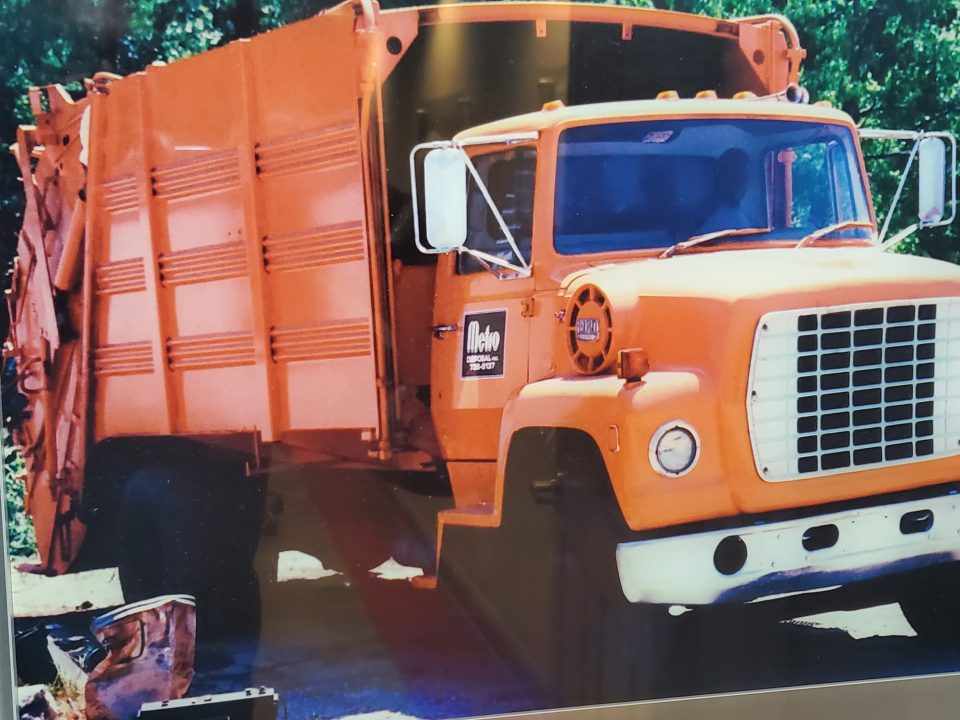
The Woods brothers are most discouraged by the fake news being pushed by these organizers. Having been in the business for nearly 40 years, they have seen union organizers before. In fact, several years ago Metro workers voted overwhelmingly not to unionize; but now organizers are using the COVID-19 crisis to get another opportunity. Metro insists that it has treated all of their employees and subcontracted hoppers with the respect and dignity they deserve. They maintain that they pay $16.75 per hour per hopper to PeopleReady, the direct employer of the hoppers; that they have always had and made PPE available, and that their trucks are amongst the best maintained in the industry.
PAY DISPUTE
PeopleReady, the direct employer of the protesting hoppers, is a part of TrueBlue, Inc., a global workforce solutions leader connecting clients with over 840,000 associates across 70 countries. They recruit, hire and directly pay the hoppers. The PeopleReady profit per hour per employee is the difference between the living wage that Metro pays for the hoppers as compared to the multi-national company whose global focus is on their own profit. PeopleReady confirms that it currently pays the hoppers at least $11.19 per hour, which is the current Living Wage under the City’s Living Wage Ordinance.
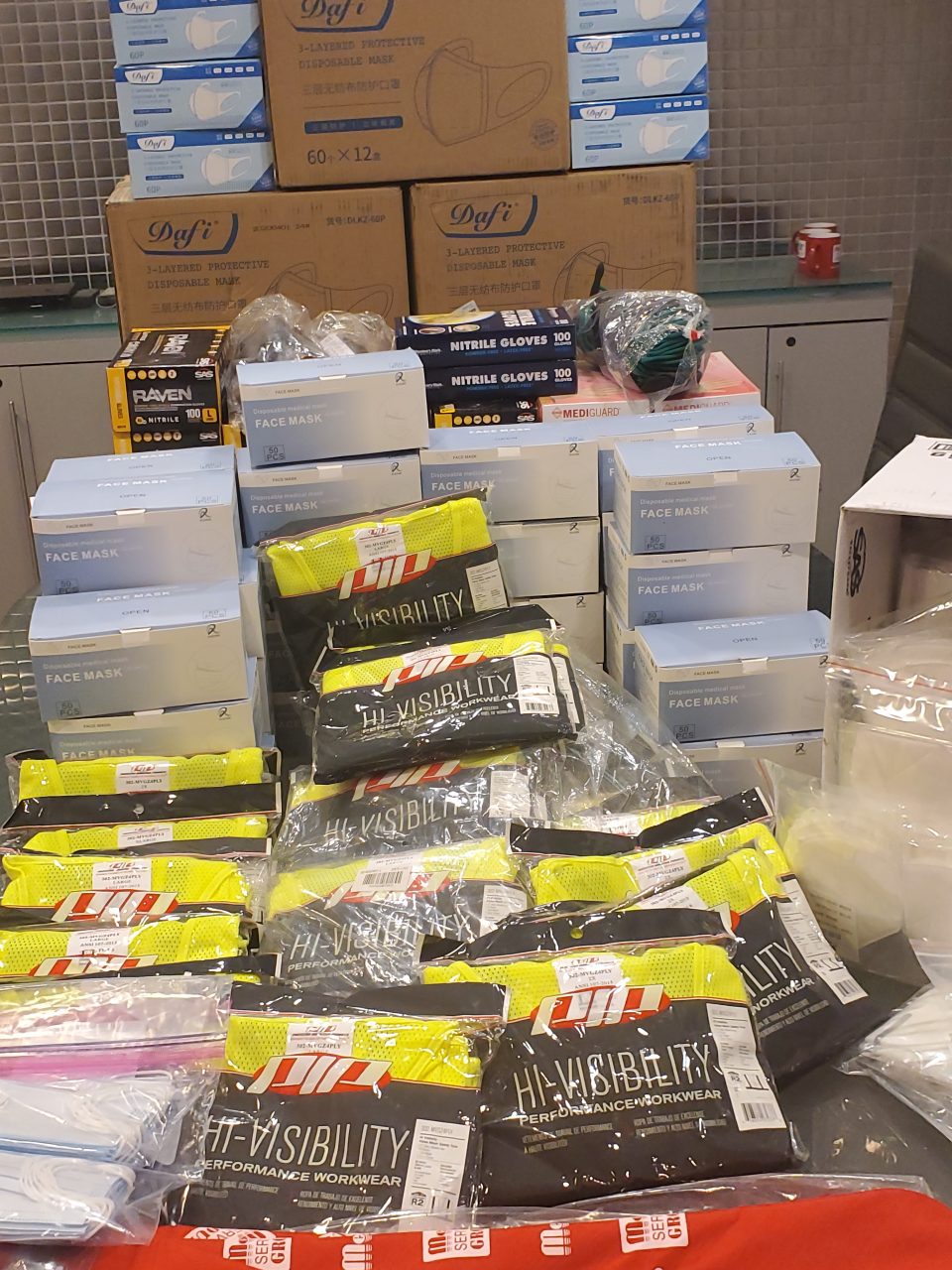
PPE
Metro has always, not only had enough PPE for their employees and sub-contractors, but have even loaned supplies to other companies that were expecting delayed deliveries. They are committed to doing everything they can to protect the citizens of the city and every person associated with Metro, whether direct employees or indirect employees. The Woods brothers live in New Orleans and shiver at the thought of them being a source of community spread. Back in February, they sourced enough PPE for each team member and plan to continue to provide them protective gear as long as there is a need. In fact, they have invoices that prove this point.
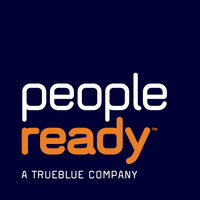
Even though PeopleReady is responsible for providing all protective gear to the hoppers, Metro has stocked enough for the hoppers. Metro has communicated in no uncertain terms to PeopleReady that it should properly protect the workers. Viewing themselves as a front-line and an essential service, Woods says, “Metro will continue to lead the way in ensuring everybody in New Orleans is safe.” In fact, Metro is researching several products that can be sprayed on cans and give them long term resistance to germs, bacteria and viruses. Though not contractually required, Metro has always been an innovative company that protects our community.
PRISON LABOR
The union claimed that Metro used prisoners from Livingston Parish to collect the trash in New Orleans. Metro does not refute this, but clarifies that when the hoppers decided not to work on May 5th, and stated that no truck would move and no trash would be collected in the City on that date, it had to act quickly to protect the citizens of New Orleans from the environmental effects waste build-up, along with honoring its contractual obligations to the City. During this pandemic, more people are home and creating and putting out more trash than normal, and Metro is committed to collecting the trash.
Faced with a reduced workforce, Metro reached out to industry competitors. None could help because they are also collecting more trash than normal. In a jam, the brothers took drastic measures. Referred to Livingston Parish by someone in the business, Metro hired trustees, who are at the end of their confinement, and are eligible to work. And New Orleans remains safe and clean. They only worked for 4 days. Metro paid a living wage to every man who worked during that 4-day period. Metro’s quick decision protected the people of New Orleans and helped some men who needed and were eligible to work.
INVESTMENT
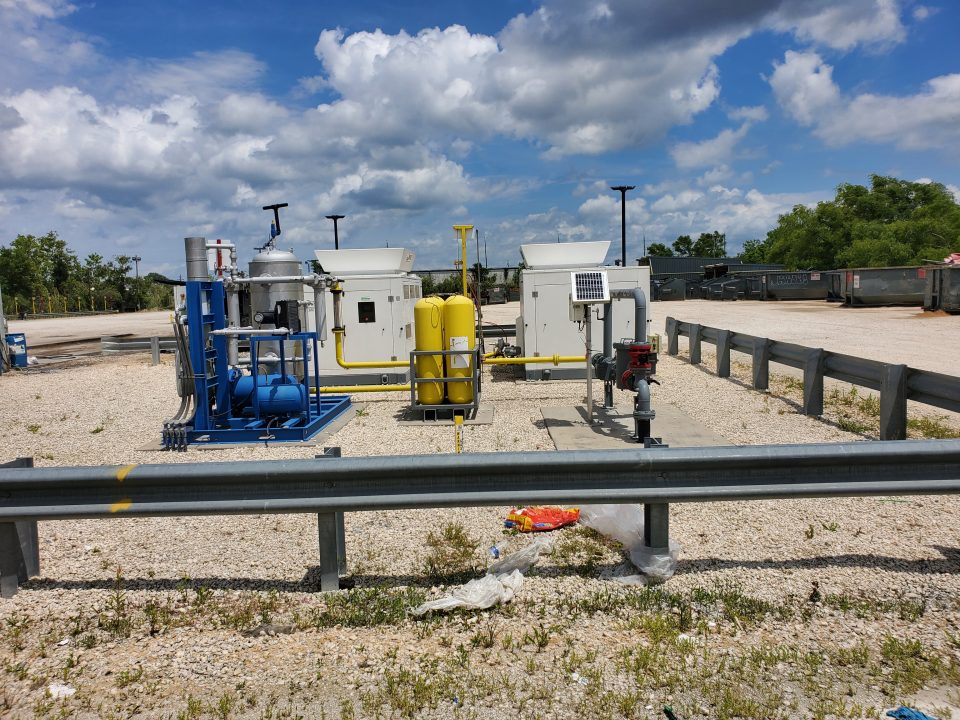
The company has invested over $3 million dollars in their fleet of trucks, and in constructing a Compressed Natural Gas plant. If you used to listen for the garbage man and run out in your PJ’s to pull out the can, you might be out of luck if Metro services your neighborhood. They use Compressed Natural Gas trucks. The trucks are super quiet, virtually eliminating noise and air pollution, but making last minute can pullers job tough.
In their sprawling NOLA East complex, Metro employs certified mechanics, who in addition to servicing the trucks replace their own tires and paint the trucks themselves. Environmentally conscious and focused on cleanliness, Metro removes the trash in late-model, well-maintained, quiet trucks. They operate the mechanic shop 24-hours a day to keep clean running compressed natural gas-powered vehicles available.
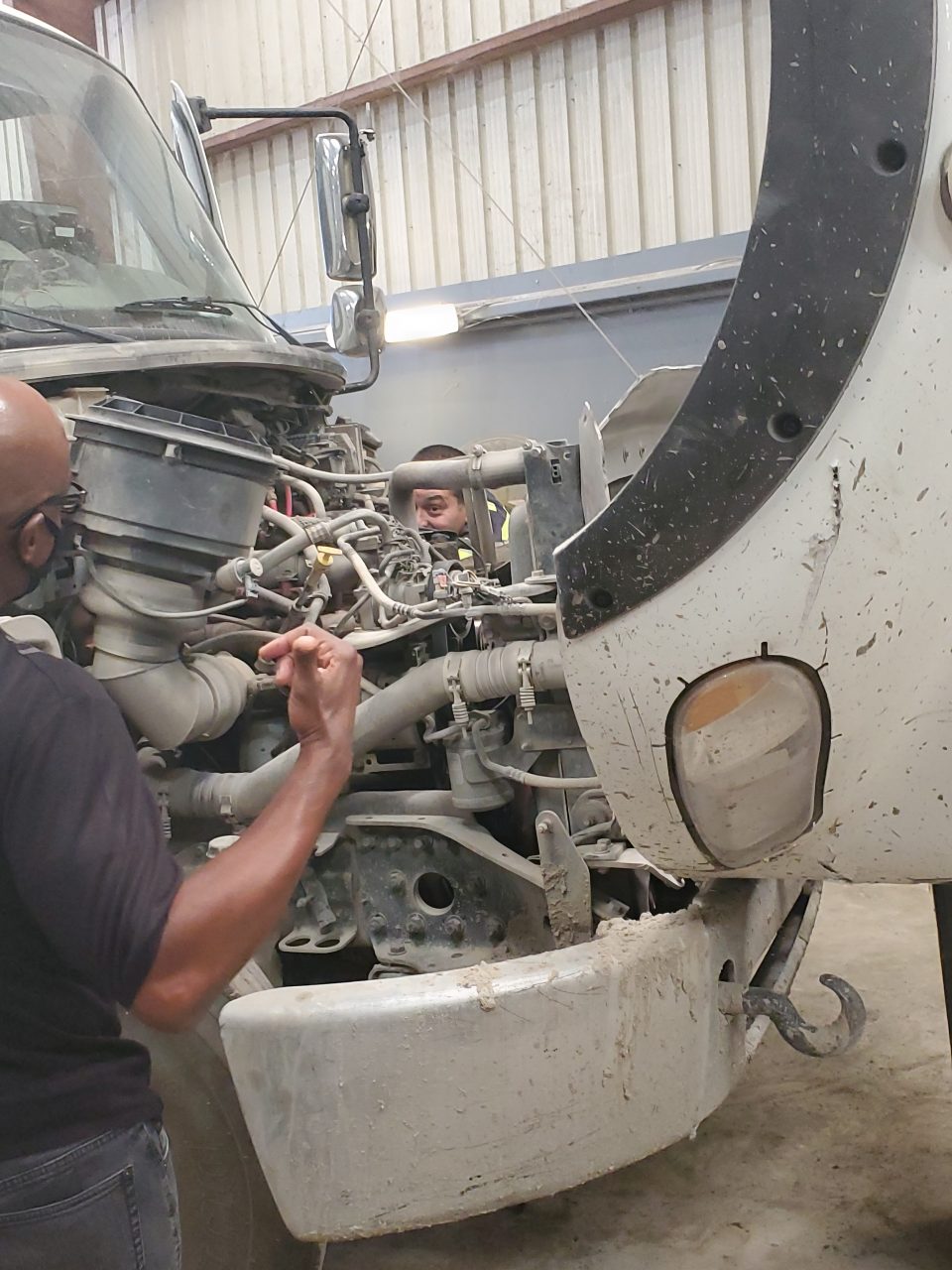
Union organizers repeatedly question hoppers about problems. One day one hose broke on one truck. Suddenly a list of demands included stopping hydraulic fluid from pouring onto hoppers. The truck was serviced the same day and back on the road with a newly repaired hose that did not leak. Jimmie and Glenn pride themselves on keeping their vehicles in tip top shape.
Municipalities like to contract local because their partners are truly invested in the community. Lifelong residents of the greater New Orleans area, Jimmie and Glenn are well known contributors to important causes that benefit us all. Churches and community groups have leaned on the businessmen over the years, so much that they had to pull back and are forming a philanthropic nonprofit that will help raise funds and be responsible for aid distribution going forward.
Metro is a family-owned business that is the American success story. Metro is an African- American owned business that is growing. Metro hires African-American men, many who would have no other work opportunity, and pays them a living wage. The company is run by native New Orleanians who live in the city. Their children attend local schools. They go to local churches and shop in local stores. They are here to protect and serve our community.
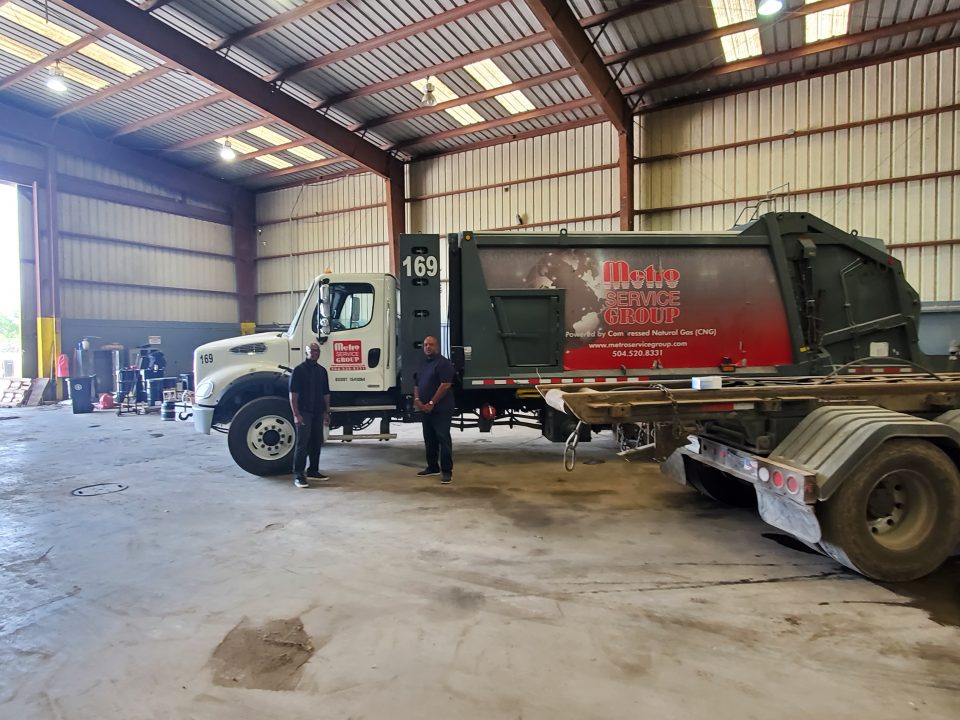
But during these strange COVID-19 times, they are being branded as a something else. A national movement to increase union membership is active and real in New Orleans. Sometimes union organizers use local people as their pawns. Instead of speaking themselves, local union organizers got three local people to be their spokesmen. Sadly, they made false claims. Most hoppers have returned to work through PeopleReady, and Metro has welcomed them back.
Let’s protect workers’ rights. Unionize when necessary. But we should not smear the good names of a local family that runs a great business and treats its people the way they would like to be treated themselves.
Strong unions are good for America. They protect our workers and safeguard working conditions and pay. Our economy is stronger when our workers have enough money to live productive lives. But national unions hurt themselves and create mistrust when they make false claims and attempt to smear the good name of a local community asset like Metro Disposal. During COVID-19, unions are growing. Workers’ rights are important. We need to do everything we can to support our people. And we need strong companies from our communities who hire our people and treat them right


Why not hire direct and pay the workers the amount paying a third party. If they are such good businessmen, create an HR and hire directly. $11 is not $15 an hour. The job is not an easy job. People are nasty and I have seen trash days. Those guys should get the entire $15 not $11 and the 3rd party collecting such a large fee to do a job Metro can do in house. This community supported Metro when contracts were threatened and to see how the company operates is disappointing. I see why the unions try to help. I’m with the workers and they deserve at least $15 an hour not $11. Do the right thing. Can you survive on $11 an hour Metro?